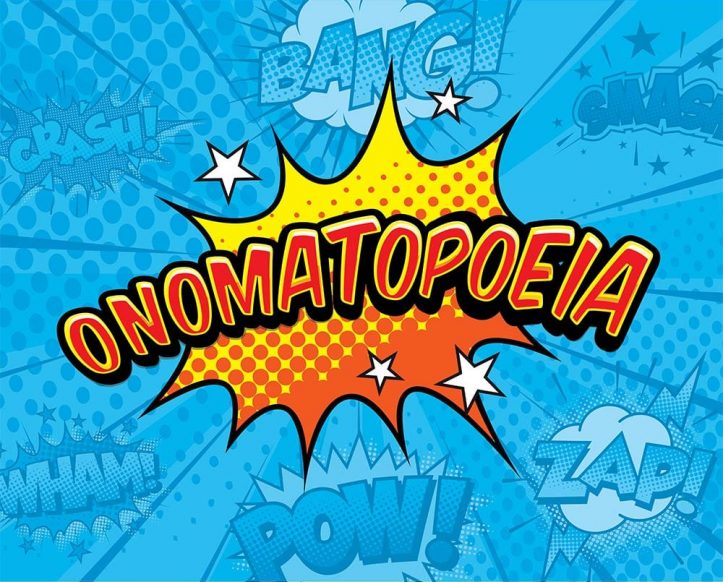What is Onomatopoeia? It is the difficulty in producing the sound of a certain sound by the tongue. Onomatopoeia refers to the inability to produce the sound. Sounds like “chirping” or “woosh” are considered to be onomatopoeic sounds. The scientific name for this condition is onomatopsia and it affects approximately 1% of the population.
Onomatopoeia is the difficulty in producing a sound, by the tongue, that sounds the same as, sounds that it signifies, or resembles. Many common onomatopoeic sounds are described as animal noises like “oink”, “mew”, “row”, and “chewed”. Other sounds are more complex like squeals and chirps. Common onomatopoeia includes certain rhythmic sounds, like click, crackle, whistle and hiss. Onomatopoeia is caused by the interference with auditory nerves. It is caused by the stimulation of certain types of sensory neurons that respond to external sound.

An excellent method of testing for Onomatopoeia is to record a person speaking unfamiliar words while doing a particular imitation or to simply listen to the voice itself when listening to an unfamiliar word spoken by someone else. Some examples of onomatopoeic words that are often used are birds (auditory coordinate) and the number one (oscillation). These examples can be used for comparison with other sound systems (i.e. speech sounds).
The word “ontogeny” refers to the ability to imitate or mimic in an environment. In humans, the ability to speak and understand words comes from the genes we inherit from our parents. We hear words and phrases and can easily copy them, but cannot actually reproduce the sound of the word or phrase. When this happens it is called onomatopoeia or ear Mimicry. For instance, when we hear a phone ringing we can often copy the sound of the phone ringing into our minds without even noticing.
Alliteration refers to the repetition of certain sound elements. Words such as alliteration in science can be explained as repeating certain words like alliteration in poetry where words repeated are the ones derived from the language. In words like alliteration in poetry alliteration is the repeated repetition of certain words that have the same alliteration pattern.
All sounds produced by a person’s voice are termed as alliterations. The letters A through Z are considered alliterations of letters in Greek. The sound of the alliteration “Atheel” is the same as the sound of the letter “A”, therefore, the word “alliteration” can be thought of as the repetition of a Greek word. For instance, the term “alliteration” in poetry refers to the repeated crossing of one accent. The same goes for the word “aphorism” which is the use of more than one parallel sentence in a poem.
A good example of words like alliteration is words like “bounce” or “breath”. These words have an interesting sound to them and are often used in poems. Examples of words like these include “bounce” in Love’s Dove and “breath” in One Hundred Kisses. Words like “breath” and “bounce” go together because both words produce the same sound when spoken. “Breath” can also be used when talking about blowing one’s nose.
Another type of word is an acronym. An example of this literary device can be found in a poem called Thanxology by James Joyce. This poem refers to the practice of poets trying to imitate sounds of words that they have come across. For instance, if a person comes across the words “beg” or “speak”, a poet would try and recreate that sound. There are other literary devices used by poets to employ, but hopefully these examples will help you in your quest to learn how to speak Greek words like a Greek poet.